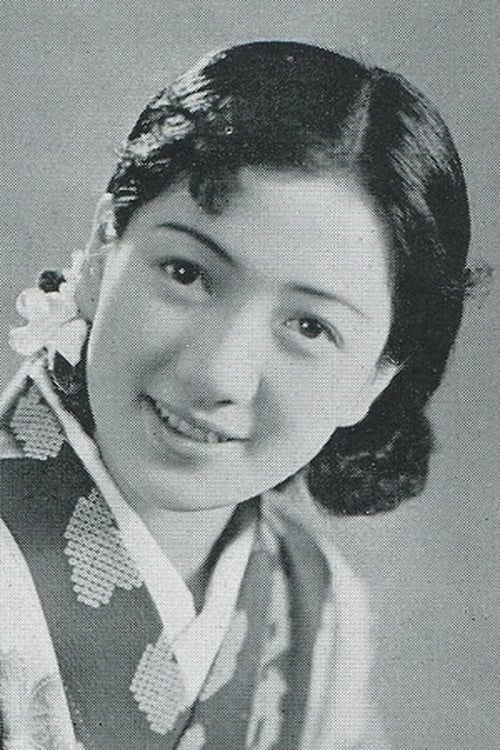
Yukiko Todoroki
出生 : 1917-09-11, 日本・東京都
死亡 : 1967-05-11
略歴
東京府東京市麻布区新堀町に生まれる[1]。 昭和6年(1931年)に京都府立第二高等女学校を中退後に宝塚音楽歌劇学校に入学して、宝塚少女歌劇団に入団。宝塚歌劇団21期生。作曲家の山田耕筰が名付け親となって、娘役として活躍する。同期生に初代・糸井しだれ、水間扶美子(退団後は服部富子)、打吹美砂(入団時は打吹たもと)らがいる。日本的な美しさが人気を集めて、主演娘役となる。
昭和12年(1937年)、日活が映画『宮本武蔵 地の巻』(尾崎純監督)の主演女優選びに難航。プロデューサーを務めた稲垣浩はタカラジェンヌから選ぶこととして、轟に着目した。宝塚少女歌劇団を退団させて、お通役で映画デビューさせた。この電撃的な引き抜きは世間を驚かせ、大事件となった[2]。
同年10月、日活映画『江戸の荒鷲』の撮影中に失明騒ぎを起こしたことがきっかけで、監督のマキノ正博と懇意となる。
昭和15年(1940年)、マキノ監督と結婚、長男正幸誕生。
昭和17年(1942年)、映画統制により、日活の製作部門は大映に統合されるが、轟は大映には加わらず、夫・マキノ正博の所属する東宝へ移籍する。
昭和18年(1943年)、黒澤明の監督デビュー作『姿三四郎』のヒロイン小夜役で人気を集める。同年、映画『ハナ子さん』主題歌、「お使ひは自轉車に乗つて」がヒット。
戦後フリーとなるが、加齢によって肥満するなど容姿に変化が出てきたことや、時代の流れで新しいスターが次々に出て来たこともあり、脇役に転身。昭和30年以降は映画製作を再開していた古巣・日活と専属契約を結び、40本を超える映画へ出演。シリアスからコメディまでこなせる性格俳優として活躍し、晩年は男の紋章シリーズ(昭和38年-41年)で高橋英樹の母親役を演じた。
昭和42年(1967年)5月11日午後5時15分、閉塞性黄疸のため、東京都北多摩郡狛江町(現・東京都狛江市)の東京慈恵会医科大学附属第三病院で逝去。49歳没。佳人薄命そのものの人生であった。
没後、平成26年(2014年)、宝塚歌劇団創立100周年記念で創立された宝塚歌劇の殿堂に、最初の100人のひとりとして殿堂入りを果たした。殿堂入りしたタカラジェンヌで、轟は2番目の若さで没した人物であった。

A brave warrior fights to restore peace to a town riddled by crime, one sword at a time, in this historical action saga.

The new head of a powerful family faces danger from an evil rival out for blood.

A dangerous mobster threatens the life of a businessman's mother in this thriller. As Ryuji oversees the building of a bridge in Japan, a powerful gangster plans to stop the project. By any means necessary.

A war veteran clashes with a mob boss in this crime saga. When Ryuji returns from the war, he finds himself torn by the death of an old friend - the son of crime kingpin Kiyomiya. A death Ryuji feels responsible for.
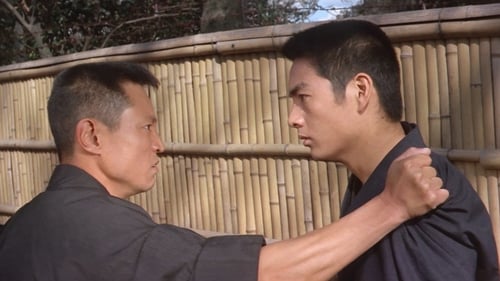
Ryuji Oshima, a gambler, kills Saiga in self-defense, and considering himself unfit to lead men, secludes himself in a temple to atone for his misdeeds. At home, when his mother, the boss of a construction gang, bids for and gets the job of building the Town Hall, other gangs set out to disrupt her business and try to kill her.

A violent story of loyalty and revenge among the many "yakuza" or gambling groups in Japan.

Kiyo Murata
In 1936 under the war clouds over the Manchurian border, 60-year-old Oshima Shozaburo is concerned about the future of his only son, Ryuji, who has refused to follow in the footsteps of his gambler father and decided to become a doctor. Ryuji leaves home to work at a clinic at a dam construction site where he finds the treatment of the laborers intolerable. But when he challenges the boss, who thinks nothing of murder, he discovers to his astonishment that he is safe because of his father's reputation. Torn between filial piety and his ideals Ryuji is told of the murder of his father by men of a rival gang. He experiences another shock when informed that the woman behind the rival gang is his true mother who was forced to leave his father due to an unwritten code among gamblers.

Tells the story of Shintaro, a lawyer who quits his job to work at a camera factory, and his love adventures.
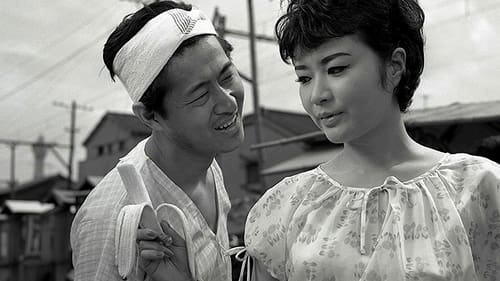
The action takes place in a city where you can live on only 100 yen a day. The "General", who indulged in gambling with his henchmen all day, he was running his business and hitting him with a taxi turned out to be a trifle for him. A unique work, filled with tears and laughter, praising the beautiful human love that blooms at the bottom of life, focused on the genius “General” who lives in the troubled city of Kamagasaki.
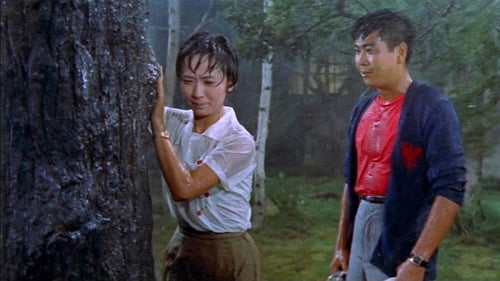
Asada Keiko and Kurokawa Saburo are two young college students. When Keiko visits Saburo's house, she meets his father Kokichi and his mother Motoko. Motoko is a famous hair dresser, who openly flaunts her lover. When Kokichi and Motoko fight, which they do a lot, he routinely threatens to leave but never quite does. A relationship develops between Saburo and Keiko, but Saburo is shaken when his mother tells Keiko the truth about Saburo's past and the secret of his birth.

Nobuyo
Set in an old merchant house in Kyoto, the film traces the passing of an era through the story of a parent and child.

Tatsu Kitagawa
Comedy about three soldiers, two female reporters, six prostitutes, and the wife of an officer, all stranded on a South Seas island at the end of World War II.
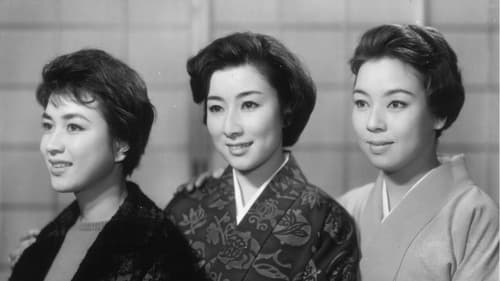
谷崎潤一郎の小説「細雪」の島耕二監督による2度目の映画化。大阪の旧家の4姉妹の日常を描いた日本映画の佳作。大阪の船場の旧家だった藤岡家の4姉妹、鶴子・幸子・雪子・妙子。三女、雪子はその人見知りが災いしてなかなか縁談がまとまらなかった。そんな中新たな縁組みの話が舞い込んできて・・・。

Mama
Shortly after arriving in Kobe, "Jiro the Lefty", a killer with a natural talent, witnesses a man die in a crane accident which turns out to be a cover-up for a murder. Jiro soon finds himself on the run, tailed by a determined cop.

Half a Loaf... Avarice / Yoku

Midori Tashiro
The young Takako Kuramoto has come to Tokyo to study and starts working for the rich Tashiro family as tutor of the daughter, Kumiko, while she receives attention from her two older brothers, Yukichi and Shinji. Meanwhile, the exact parentage of Shinji comes to light.

Kotoko Sonoya
Shokichi, the owner of the clothing store, lives with his daughter Hideko and plans to open an art gallery. One day, Hideko led a handsome art student, Shohei and a poor painter, Sohei. Sohei’s painting was praised by a great printer at the completion ceremony of the art gallery. Since he became successful as a painter, but he looked quite indifferent. Around the same time, Shohei’s sister brought Sohei’s pictures to the gallery and Shokichi noticed that she was a daughter of his first love.


Fuyuko Taki
It’s been five years since her husband had passed away. Fuyuko lives in the quiet suburbs, in a small but loving home with her three beautiful daughters. Haruko, the eldest, is the lead vocalist in a band. Natsuko is the conscientious type, who spends her days in ballet classes beautifying herself. The youngest of the three, Akiko is a bookworm who found her niche in philosophy. Although the sisters may appear to have nothing in common, there is one thing they all agree on; "Mom needs a new husband".

Mayumi Ogouchi
A continuation of Hungry Soul, from the same year. Reiko, who tolerates abuse in her marriage to a man 23 years her senior, is friends with Mayumi, a beautiful widow. Reiko meets her husband’s business rival, a young, capable businessman, and falls for him. Meanwhile, Mayumi enters into a relationship with Shimotsuma, a friend of her late husband.

Mayumi Ogouchi
Reiko, who tolerates abuse in her marriage to a man 23 years her senior, is friends with Mayumi, a beautiful widow. Reiko meets her husband’s business rival, a young, capable businessman, and falls for him. Meanwhile, Mayumi enters into a relationship with Shimotsuma, a friend of her late husband.
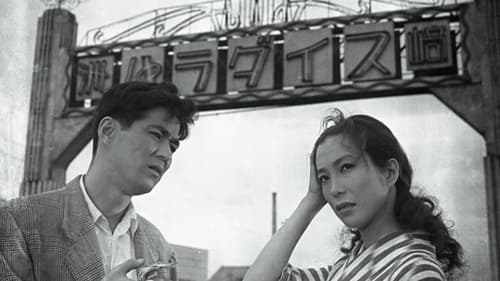
Otoku
A jobless young couple, Yoshigi and Tsutue, wind up at the outskirts of the Suzaki red-light district in Tokyo. Tsutue talks her way into a job pouring sake for male customers at a small bar run by a sympathetic older woman, while Yoshigi is shunted off into a nearby noodle shop, where he gets a job delivering noodles. Tsutue charms and runs off with one of her clients. Yoshigi, ignoring the attentions of a sweet co-worker, pursues Tsutue.

Chief editor Shirou Kanzaka (Hisaya Morishige) of Sankei Publishing Inc. is being tried for embezzlement and the staging of Chiyo Umehara's suicide. The victim is a woman who's said to have had sexual relations with the defendant. Four intertwined witnesses; a critic, Shirou's employee, a singer, and his wife, are all called to the stand. His destiny now lies in their hands.

Housewives from four neighboring households casually gather at an old well at Kaneko's house in a residential area on the outskirts of Tokyo. If two people come together, they will talk about selling kimonos, if three people come together, they will discuss food shopping, and when four people come together, there will be laughter. Focusing on four housewives who gather at the edge of the well, it depicts the daily life of each household.

Choko, mother of Shinichi

At Shizumoto, a geisha shop not far from Ginza, a group of geisha are going about their day, putting up a modest resistance to the tragedies of life. The proprietress, Ikuyo, is a ridiculously good-natured woman who gives money to a poor but brilliant young man, Eisaku Yanoguchi, to attend college on the condition that he will take care of her in the future.
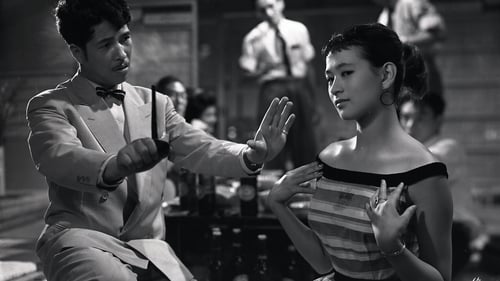
Ranko Araki
The female members of the family of the Minister of Health and Welfare, who has just proposed a program of birth control, become pregnant one after the other. - Nikkatsu

Yasuichiro Isa, who works in the labor section of Sone Mining Tokyo Headquarters, paid a monthly fee for his younger brother, Reiji, who was in trouble because he had a bonus of 10,000 yen more.

Sixth film of the Bannai Tarao series starring Chiezo Kataoka.

Mrs. Natsuko

Ryō Hagiwara movie

Tomoko Takashima
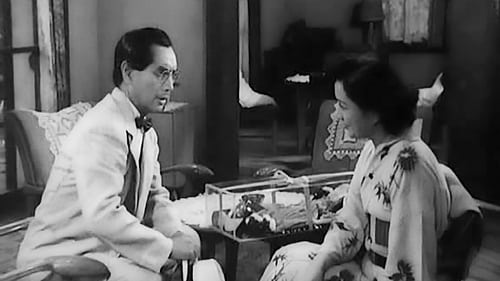
Tomiko Ono
Set in post-war Japan, The Lady of Musashino tells the story of Michiko, a disillusioned young woman trapped in a loveless marriage. She confides in her younger cousin, Tsutomo, and the two become close, but decide not to consummate their affair. He instead becomes involved with the flirtatious Tomiko, who is also conducting an affair with Michiko's husband. When Michiko finds that her husband has abandoned her, she decides to take her fate into her own hands.
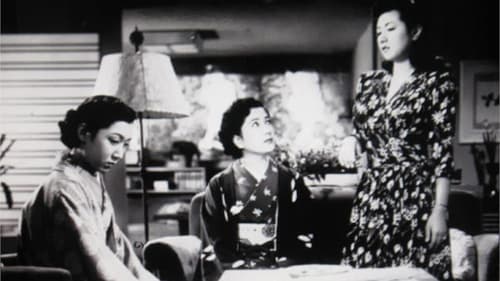
Sachiko
谷崎潤一郎の同名小説を八住利雄が脚色し阿部豊が監督した文芸作。大阪を舞台に美しい四姉妹が織りなす物語。『細雪』はこの後、島耕二(1959年)と市川崑(1983年)により映画化された。四女の妙子を演じた高峰秀子が抜群の演技力を見せる。洪水のシーンに特撮が使われ、豪華な衣装が多数用意されるなど、当時としては破格の製作費がかけられたという。 昭和初期の蒔岡家。長女の鶴子は夫と共に古い暖簾を守り、次女の幸子は婿養子を迎えて芦屋に分家、三女の雪子は幸子夫妻から縁談を持ちかけられるが上手くいかない。四女の妙子は恋仲になったカメラマンが死亡したことから、自暴自棄になってしまう…。

Fujiko - Shûsuke's wife
映画『窓から飛び出せ』は、二組の家族の交流を描いた心温まる作品です。徳山周介(大日方傳)は農業と畜産業を営み、父の理太郎(汐見洋)、弟の勇二(小林桂樹)、妻の藤子(轟夕起子)、4人の子供(うち3人が大日方の息子と娘2人)の8人という大家族で暮らしていました。隣家の藤枝家は、船長だった夫を海での遭難事故で亡くした千栄子(岡村文子)と娘の茉利子(香川京子)、足に障がいがありリハビリを続ける息子の道夫(大日方の息子)の3人家族でした。その徳山家と藤枝家の交流を通して、家族の大切さ、人の優しさが画面いっぱいに映し出されます。

Ofuji
The tale of a feudal swordsman who cynically takes no responsibility for anything, relegating it to others, and then taking the credit.

A pickpocket falls in with a group of prostitutes who have one strict rule: none of them may ever sleep with a man without taking his money — falling in love is forbidden.

First film of the Bannai Tarao series starring Chiezo Kataoka

Based on the comic by Yutaka Asou

1946 Toho film directed by Kiyoshi Saeki

Sayo
In this government-suggested sequel, Sugata again grows as a judo master, and demonstrates his (and by extension, all Japanese) superiority to the foreign warrior.

Ritsuko
Hisshoka is a 1945 Drama film directed by four Japanese directors.
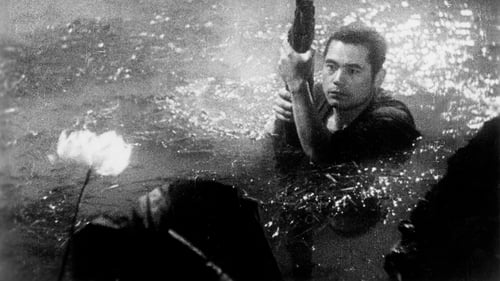
Sayo Murai
The story of Sanshiro, a strong stubborn youth, who travels into the city in order to learn Jujutsu. However, upon his arrival he discovers a new form of self-defence: Judo. The main character is based on Shiro Saigo, a legendary judoka.

Hanako
Hanakosan (1943, TOHO, MAKINO Masahiro), a thoroughly light and joyful musical comedy, influenced by Busby Berkeley films, against the national policy under the wartime, was made into a film from comic serials by SUGIURA Yukio published in a magazine.

The premature death of a young mother serves as inspiration for her husband and son.

Story of Jiro

An actor, hit on the head, dreams that he has become legendary one-eyed gangster Mori no Ishimatsu.

"Around the time he made such remarkably ambivalent war films as Mud and Soldiers and Five Scouts, Tasaka directed this 'home front' comedy-drama which is too bizarre to be serious propaganda. [The plot revolves around a public contribution campaign to buy airplanes.] The mayor's aviator son promises to fly over the village in salute, and much of the narrative concerns the preparations for this great event. Tasaka throws in a few songs, some village humor and satire, and tremendous camera mobility, finally wringing every possible effect from his climax." John Gillett, British Film Institute

One of Uchida’s early sound films, Unending Advance is based on a curious story by Yasujiro Ozu, in which an examination of the quotidian problems of a middle-aged salaryman and his family segues into an idyllic dream of an implausible future. The surviving print, although incomplete, offers an essential glimpse into Uchida’s prewar period, when he was associated more with realist dramas than with the period films that dominated his work after the war.


















